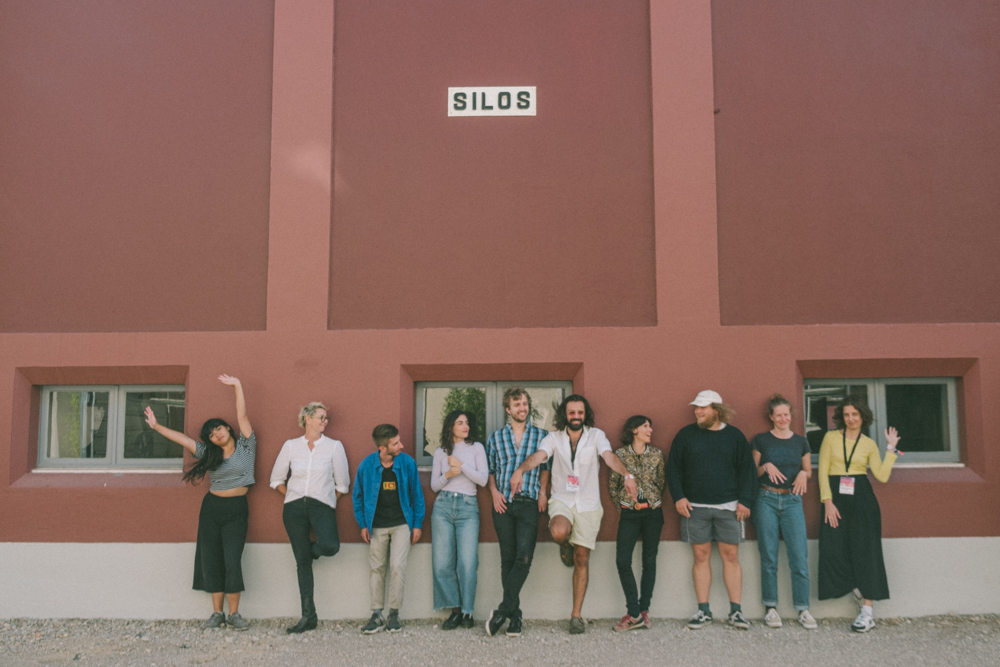“Being as close as possible to the needs of creators”: an interview of Julie Poureau from la Sacem and Chloé Nataf from Trempo
For its second season, the European training program Slash, produced by Trempo as part of the pilot program Music Moves Europe, co-financed by the European Union, also benefits from the support of Sacem. Julie Poureau, Director of the Cultural Engineering Office within the Cultural Action Department of Sacem, talks to Chloé Nataf, Head of Cultural Entrepreneurship and European Projects Coordinator at Trempo, about the reasons that led the French authors’ society to support this program.
Julie Poureau, why did Sacem decide to support Slash 2?
JP: Our interest in Slash 2 goes back two years ago. At the time, we were questioning the field of entrepreneurship, which is increasingly present in the music world. At the time, Sacem was conducting a study on this topic, which was also supported by the Ministry of Culture via the DGMIC (General Direction for Media and Cultural Industries). It was a theme that we had to tackle for our members. So we contacted Trempo, a beneficiary of the European Commission’s Music Moves Europe scheme. This opportunity came at the right time in our thinking.
Chloé Nataf, why did Trempo talk to Sacem?
CN: There was a desire to move in the same direction. At MaMA 2019, we presented our different missions and discussed participatory financing in particular. Then we talked about entrepreneurship and mentioned a project to support artists. We felt that there was a common desire then.. For Trempo, registering the support of the Sacem allowed us to diversify our sources of financing. It showed our ability to innovate in our search for funding. And Sacem is a network of experts, a slightly different perspective… We were interested to benefit from this support. We had not yet worked on the optimisation of patrimonial rights. Sacem was therefore the ideal partner.
Why is Sacem, the French authors’ society, involved in a European programme?
JP: In 2020, we had already carried out a European cooperation project, “Future Songwriting”, supported by Sacem Université. The idea was to take secondary school students behind the scenes of the creation of a song. The fact that we went for a second European project with Slash is a response to the expectations of our members. We are developing our programs to be as close as possible to the needs of creators. With the subject of entrepreneurship, the idea is not for the artist to do everything on his own, but for him to be able to surround itself and, above all, to be aware that tools exist. It comes a time when the artist cannot always do everything alone.
CN : The idea is not to work on the disintermediation of the artist. At the beginning of their career, artists have to prove themselves on their own in order to be identified. Once they have managed to get past this stage, it is important to give them the tools to structure themselves and to provide them with a professional entourage. With Slash, the objective is to prepare them for their relationship with the ecosystem to make a sustainable career.
In the current context, made difficult by the pandemic, do you think it is important to support « slash artists »?
JP: This is a shift that Sacem had to make even before the health crisis. The creation of the engineering office, officially launched in September 2021, is an example. We want to strengthen support, and the engineering office will give impetus and provide tools for this. Our vocation is to follow new trends, including the one of of entrepreneurship.

How quickly did you set up this partnership?
CN: With Slash 1, we had already anticipated the submission of the file for Slash 2 to the European Commission. If we had waited, we would not have been right on course. The file was written quickly because the work phase had been carried out beforehand. Sacem was very prompt to propose experts on the subject of entrepreneurship.
JP: Yes, we quickly mobilised internal contacts within the various departments of Sacem: Sacem Innovation, Sacem Université, the communication department and the institutional relations department.
How was this partnership organised in concrete terms? Did you work together to choose mentors, speakers, themes and artists?
CN : The themes and mobilities were defined from the outset because they had to be included in the file sent to the European Commission. For the choice of mentors, there was obviously consultation. We proceeded by going back and forth. Sacem was also involved in the artist’s selection.
How were Slash’s technical partners chosen, such as Promus (Denmark) and MIL (Portugal)?
JP: We relied on Trempo’s expertise in choosing partners. Denmark came into play quite quickly with the Promus structure, which is the local equivalent of Trempo. The Nordic countries are very advanced in business and artist training issues.
CN: We already knew Jesper Merdahl, director of Promus, whom we had invited to speak at the Slash convention organised with the European Music Incubator. Promus has entrepreneurial programs for artists. As for Portugal, we were in touch with the MIL via Fabien Miclet, who works as a consultant for Europe and for this event. MIL is a partner of Jump, a training project for entrepreneurs in the music industry. We have been wanting to make this partnership a reality for a long time.
What benefits do you expect from Slash 2?
JP: It’s a basis for continuing to work because we still have a long way to go. I see it more as a first step, the first stone of a strategic project for Sacem.
CN: The same goes for Trempo, even though we are already at the third step. We are continuing to test educational contents, speakers, etc. Afterwards, we will carry out an evaluation and draw conclusions about what works and what we could adapt to other systems.
JP: These assessments will provide a wealth of information and will allow us to record feedback. We will see what this can bring to Sacem’s member artists and how to continue to build and consolidate.
Julie Poureau, is Sacem thinking of renewing its support for Slash 3?
JP: As long as it fits in with our priorities, of course, we will obviously be willing to start the adventure again. Especially if we go down the path mentioned, which is the link between artists and territories.
A few numbers about Slash Program — Season 2 :
Number of applications for Slash 2: 180
23 different nationalities
Number of finalists: 9
Amount of the operation: 112,500 euros, including 90000 euros from the European Union (Music Moves Europe pilot project) and 22500 euros from the Sacem
Interview : Sylvain Chantal
Photos © Filipa Aurélio

